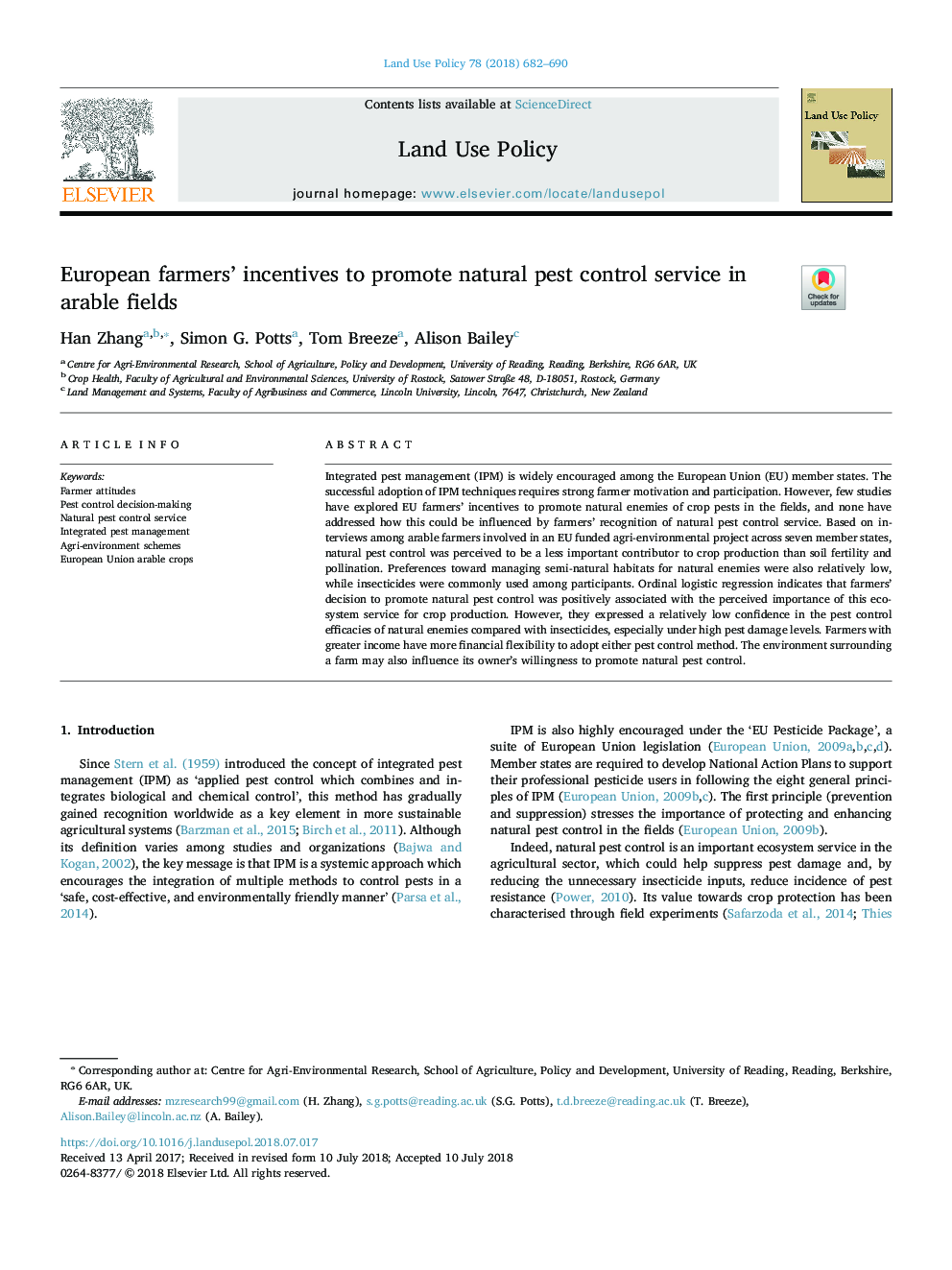| کد مقاله | کد نشریه | سال انتشار | مقاله انگلیسی | نسخه تمام متن |
|---|---|---|---|---|
| 6546087 | 1421805 | 2018 | 9 صفحه PDF | دانلود رایگان |
عنوان انگلیسی مقاله ISI
European farmers' incentives to promote natural pest control service in arable fields
ترجمه فارسی عنوان
انگیزه کشاورزان اروپایی برای ارتقاء خدمات کنترل آفات در زمینه های کشت زراعی
دانلود مقاله + سفارش ترجمه
دانلود مقاله ISI انگلیسی
رایگان برای ایرانیان
کلمات کلیدی
نگرش کشاورز، تصمیم گیری کنترل آفات، خدمات کنترل آفات طبیعی، مدیریت تلفیقی آفات، برنامه های محیط زیست، محصولات زراعی اتحادیه اروپا،
موضوعات مرتبط
علوم زیستی و بیوفناوری
علوم کشاورزی و بیولوژیک
جنگلداری
چکیده انگلیسی
Integrated pest management (IPM) is widely encouraged among the European Union (EU) member states. The successful adoption of IPM techniques requires strong farmer motivation and participation. However, few studies have explored EU farmers' incentives to promote natural enemies of crop pests in the fields, and none have addressed how this could be influenced by farmers' recognition of natural pest control service. Based on interviews among arable farmers involved in an EU funded agri-environmental project across seven member states, natural pest control was perceived to be a less important contributor to crop production than soil fertility and pollination. Preferences toward managing semi-natural habitats for natural enemies were also relatively low, while insecticides were commonly used among participants. Ordinal logistic regression indicates that farmers' decision to promote natural pest control was positively associated with the perceived importance of this ecosystem service for crop production. However, they expressed a relatively low confidence in the pest control efficacies of natural enemies compared with insecticides, especially under high pest damage levels. Farmers with greater income have more financial flexibility to adopt either pest control method. The environment surrounding a farm may also influence its owner's willingness to promote natural pest control.
ناشر
Database: Elsevier - ScienceDirect (ساینس دایرکت)
Journal: Land Use Policy - Volume 78, November 2018, Pages 682-690
Journal: Land Use Policy - Volume 78, November 2018, Pages 682-690
نویسندگان
Han Zhang, Simon G. Potts, Tom Breeze, Alison Bailey,
